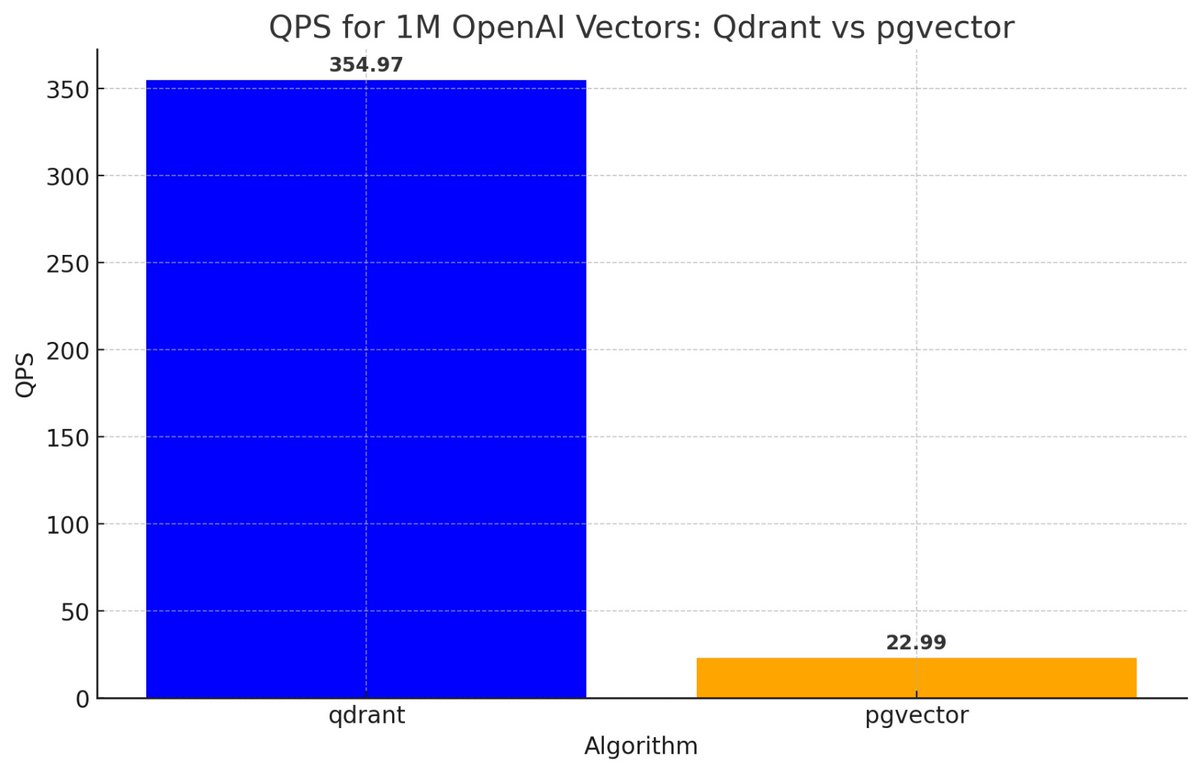How to get URL link on X (Twitter) App


 apple.github.io/embedding-atla…
apple.github.io/embedding-atla…

 As a postgres fan, I am sad to see that pgvector not only starts at less than half the QPS at even 100K vectors — it dips really quickly beyond that.
As a postgres fan, I am sad to see that pgvector not only starts at less than half the QPS at even 100K vectors — it dips really quickly beyond that. 

